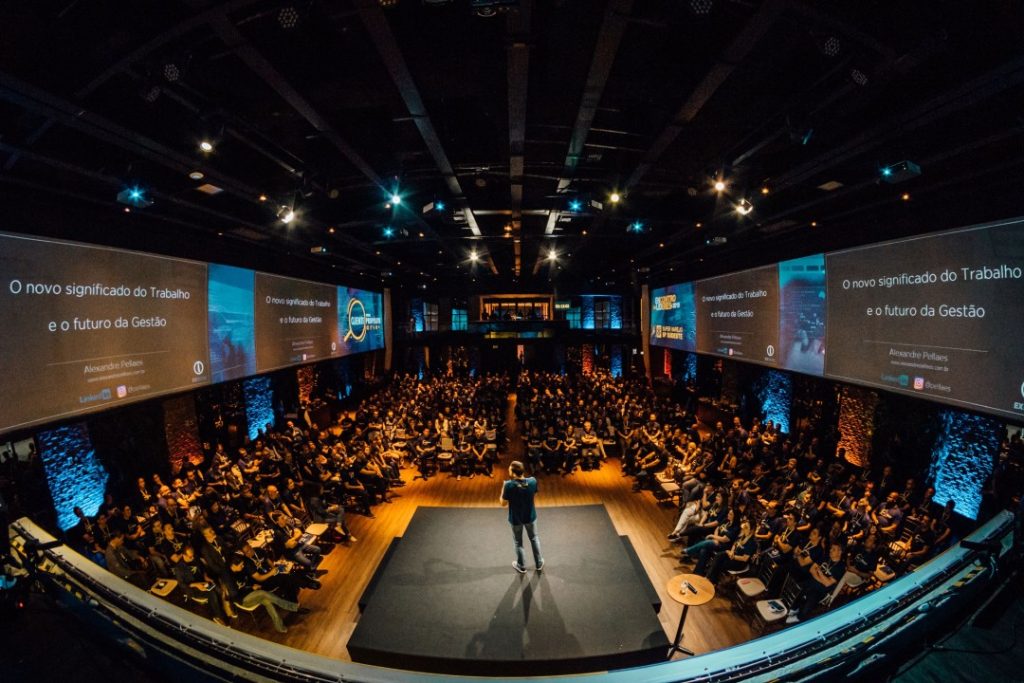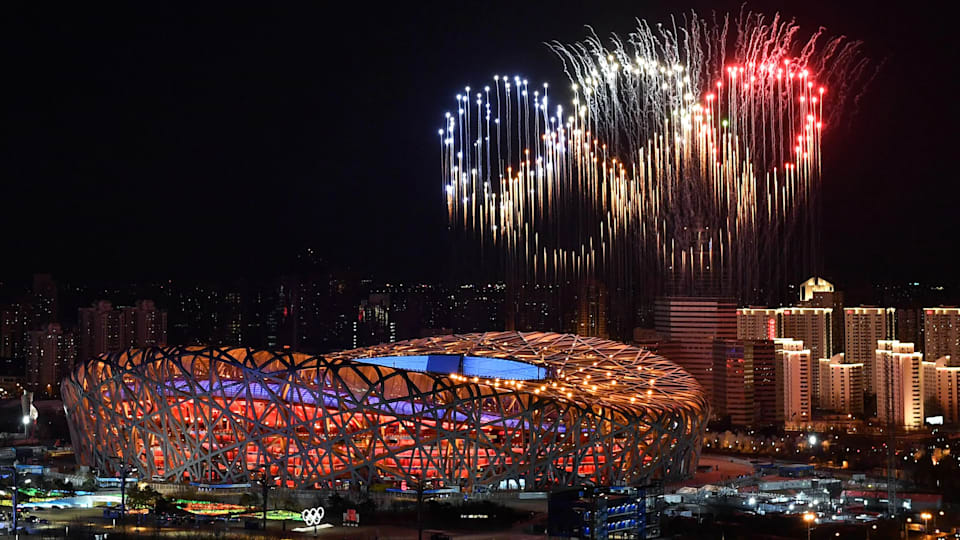
The events industry has emerged as a dynamic and vibrant sector, playing a pivotal role in bringing people together for various purposes across the globe. According to recent studies conducted by the CMI Team, the Global Events Industry Market has witnessed significant growth, with projections indicating substantial expansion in the coming years.
In 2022, the market size is projected to reach a valuation of USD 1,190.4 billion. By 2032, the valuation is anticipated to reach USD 1,752.9 billion. This article delves into the multifaceted landscape of eventing, exploring its diverse segments, significance, and the driving forces behind its exponential growth.
Read CPI research HERE
The Multifaceted Landscape of Eventing:
Eventing encompasses a diverse array of gatherings and activities designed to bring people together for various purposes, ranging from professional networking to cultural celebrations. Within this dynamic landscape, several distinct segments emerge, each playing a unique role in shaping the industry’s vitality and significance.
1. Definition and Diverse Segments:
Eventing, at its core, is the organization and execution of gatherings, occasions, and experiences aimed at facilitating interaction, engagement, and exchange among participants. This broad umbrella term encompasses an extensive range of events, which can be categorized into several distinct segments:
– Corporate Events: Corporate events are strategic gatherings hosted by businesses or organizations for internal or external stakeholders. These events include conferences, seminars, product launches, team-building activities, and corporate retreats. They serve as platforms for knowledge sharing, brand promotion, employee engagement, and relationship building within the corporate realm.
– Conferences: Conferences are structured events that bring together experts, professionals, and enthusiasts within a specific industry or field of interest. They often feature keynote speakers, panel discussions, workshops, and networking sessions, facilitating the exchange of ideas, best practices, and innovations. Conferences play a vital role in driving industry advancement, fostering collaboration, and facilitating professional development.
– Trade Shows: Trade shows, also known as exhibitions or expos, are large-scale events where companies showcase their products, services, and innovations to potential customers, partners, and investors. These events provide opportunities for businesses to generate leads, establish partnerships, and gain insights into market trends. Trade shows are instrumental in driving industry growth, promoting business expansion, and facilitating market penetration.
– Festivals: Festivals are cultural or thematic celebrations characterized by festivities, performances, and communal activities. They encompass a wide range of events, including music festivals, food festivals, art fairs, and religious celebrations. Festivals serve as platforms for cultural expression, community engagement, and tourism promotion, contributing to the enrichment of social and cultural landscapes.
– Social Gatherings: Social gatherings encompass informal events organized for socializing, recreation, and leisure purposes. These gatherings include parties, weddings, receptions, and family reunions, among others. Social gatherings foster social cohesion, strengthen interpersonal relationships, and provide opportunities for relaxation and enjoyment.
2. Contribution to Industry Growth:
Each segment of eventing makes a distinct contribution to the overall growth and significance of the industry:
– Corporate events: facilitate business development, enhance brand visibility, and drive organizational success through effective communication and engagement strategies.
– Conferences: foster knowledge exchange, professional networking, and industry collaboration, driving innovation and advancement within specific sectors.
– Trade shows: stimulate economic activity, facilitate market expansion, and promote industry development by connecting businesses with potential customers and partners.
– Festivals: enrich cultural landscapes, promote tourism, and generate economic benefits for host communities, contributing to social cohesion and cultural vitality.
– Social gatherings: strengthen social bonds, celebrate milestones, and create memorable experiences, enhancing the quality of life and fostering a sense of belonging within communities.
Significance of Eventing:
Events hold profound significance in society, serving as catalysts for bringing people together, fostering meaningful connections, and driving economic and cultural growth. Their impact extends beyond mere gatherings, influencing social dynamics, knowledge exchange, and economic prosperity.
1. Importance of Events in Bringing People Together:
Events serve as pivotal platforms for uniting individuals with shared interests, passions, or goals, transcending geographical, cultural, and social barriers. Whether it’s a corporate conference, a music festival, or a community fair, events create opportunities for people to connect, interact, and engage in meaningful dialogue. By facilitating face-to-face interactions and fostering a sense of community, events play a vital role in strengthening social bonds and promoting inclusivity.
2. Role of Events in Fostering Networking and Knowledge Exchange:
Networking and knowledge exchange are intrinsic components of events, driving collaboration, innovation, and professional growth. Events provide avenues for individuals to expand their networks, forge new partnerships, and access valuable resources and expertise. Through keynote speeches, panel discussions, workshops, and interactive sessions, events facilitate the exchange of ideas, best practices, and industry insights, empowering participants to stay informed, inspired, and competitive in their respective fields.
3. Contribution to Economic Growth:
Events wield significant economic influence, stimulating business activity, driving tourism, and generating revenue for host communities. Major conferences, trade shows, and sporting events attract delegates, exhibitors, and spectators from around the world, injecting capital into local economies and supporting businesses across various sectors. Moreover, events create employment opportunities, spur infrastructure development, and enhance the visibility and attractiveness of host destinations, thereby contributing to sustained economic growth and prosperity.
Examples of Successful Events:
– Olympic Games: The Olympic Games represent one of the most iconic and impactful sporting events globally. Host cities invest heavily in infrastructure, transportation, and hospitality to accommodate athletes, officials, and spectators. The Olympics not only showcase athletic excellence but also promote international cooperation, cultural exchange, and urban development, leaving enduring legacies for host cities long after the games conclude.
– TED Conferences: TED (Technology, Entertainment, Design) conferences have revolutionized the way ideas are shared and disseminated. These thought-provoking events feature influential speakers from diverse fields delivering captivating talks on topics ranging from science and technology to art and social issues. TED conferences have inspired millions worldwide, fostering innovation, sparking dialogue, and catalyzing positive change across various domains.

Driving Forces Behind Exponential Growth
The exponential growth of the events industry can be attributed to a confluence of factors that have reshaped the landscape of event planning, management, and attendee experience. From technological advancements to shifting consumer preferences and globalization, several key drivers have propelled the industry forward, fostering innovation and driving market expansion.
– Technological Advancements: Technological innovations have revolutionized every aspect of event planning, management, and execution. The integration of advanced event management software, mobile applications, and virtual reality (VR) technologies has streamlined logistics, enhanced communication, and elevated the overall attendee experience. Features such as online registration, digital ticketing, live streaming, and interactive event platforms have made events more accessible, interactive, and engaging for participants, while also providing organizers with valuable data insights for future planning and decision-making.
– Globalization and Rise of International Events: Globalization has facilitated the proliferation of international events, transcending geographical boundaries and cultural barriers. The interconnected nature of today’s world has enabled event organizers to attract diverse audiences and participants from across the globe, driving market expansion and fostering cross-cultural exchange. Major international events, such as conferences, trade shows, and festivals, serve as platforms for knowledge sharing, networking, and collaboration on a global scale, catalyzing innovation and economic growth in diverse industries and sectors.
– Changing Consumer Preferences and Demands: The evolution of consumer preferences and demands has played a significant role in shaping the trajectory of the events industry. Today’s consumers seek immersive, personalized, and experiential experiences that resonate with their interests, values, and lifestyles. As a result, event organizers are increasingly focusing on creating unique, tailored experiences that cater to diverse audiences and demographics. From themed events and pop-up activations to interactive workshops and wellness retreats, the emphasis is on authenticity, engagement, and meaningful connections that leave a lasting impression on attendees.
As projections indicate significant growth in the years to come, it’s essential for stakeholders to recognize and seize the myriad opportunities presented by the ever-expanding landscape of eventing. Whether you’re an event organizer, a business owner, or a participant, there is immense potential to leverage the power of events to achieve your goals, forge meaningful relationships, and make a lasting impact.













